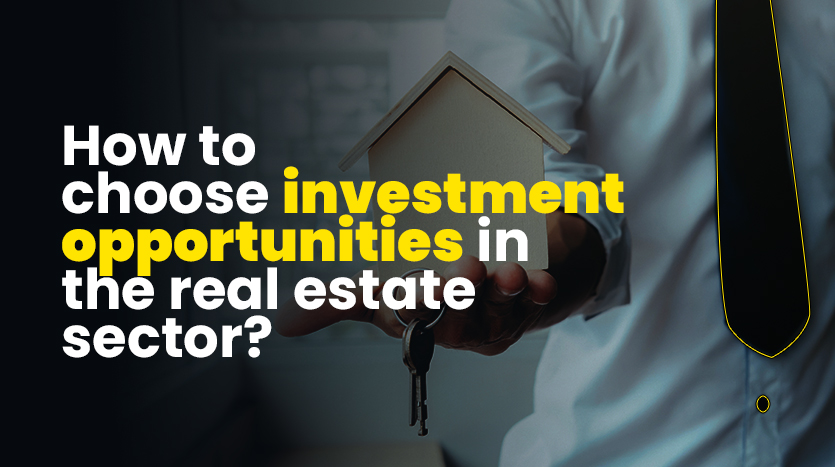If you ever have had experienced a landlord, fortunately, or unfortunately, you would know what it is like to be one: there are never-ending efforts to mitigate and resolve complaints about the bugs, leaking flushes, overflowing toilets, etc; which makes it the most undesired job prima facie. Nevertheless, investment in real estate can be quite profitable if done using a little wit and the right strategy. It can also help you in diversifying the nature of your investments, and can definitely prove to be an extra income source, if not the money cow. Luckily, many of the investment types do not require showing up against every call of the residing tenet. However many of the investors willing to invest in real estate are not familiar with it which in many cases makes the investors give up the very idea of the real estate investment. We, therefore, have made a list of the best and possible opportunities in the real estate sector. The list follows:
1. By investing in the rental properties
Investment in rental properties such as purchasing home properties for sale enables you to live in your own investment property while allowing you to rent other rooms or units.
“I went on Property buy-rent and found a four-bedroom, four-bathroom house that was set up student-housing style. I bought it, lived in one bedroom, and rented out the other three,” Ali says.
Such investment in the real estate covered all of Ali’s expenses and not only this, it also helped him to receive an extra 100 dollars per month. This was no average money for a graduate student, which led Ali to see a real opportunity for him in real estate; he from there onwards became closely interested in the residential houses for sale. Lo and behold, at the age of only 27, he now owns various land and plots; he is a real estate property dealer and owner of his own real estate group in Lahore.
The strategy using which Ali entered in the market is referred to as ‘house hacking’, a term defined by the online resources for the real estate investors. The reason why it has been considered as a hack is that you are free to use your own property while being able to rent its portion out at the very same time. The best thing about it is that even with a purchase of a double-storied property with two bedroom accommodation, it still makes you qualified for the residential loans.
Living while renting out the property is not mandatory at all, you may also rent your entire property without having to keep a residence inside it. The hack lies in that you need to find a property that has less maintenance charges than the amount which you are going to charge and you will be all good to go.
“If you manage it yourself, you’ll learn a lot about the industry, and if you buy future properties you’ll go into it with more experience,” says a top real estate investor.
2. By twisting the investment properties
Invest in some residence houses for sale, renovate them most economically, and present it for a resale by keeping a profit according to the factors as location, the post-renovation condition etc; this is what known as the ‘house twisting’ or ‘house flipping’. This strategy at first feels like it is easier however it is in fact a little tougher; still worth the hassle, if any.
“There is a bigger element of risk, because so much of the math behind flipping requires a very accurate estimate of how much repairs are going to cost, which is not an easy thing to do,” says Property buy-rent Lahore’s Region Manager.
What he actually suggests here is that to find someone who is experienced; you have capital for investing the money and time for investing the energy, but by finding somebody who is experienced at estimated the costs and expenses would prove to be a great deal of help for your investment in the real estate.
With that said, a risk associated with it is the longer the flipped property is kept or is not being to be sold its value starts getting to decrease due to the expenses which you are required to pay in any form. The best way of overcoming such risk or expense is by keeping residence inside it as long as it is not sold. By doing this, you are paying for one expense against the two factors: residence keeping and house maintenance expenses.
3. By buying the REITs (Real Estate Investment Trusts)
The best thing about buying REITs is that you get to invest in real estate without having to invest in the physical entity of real estate. Owing to their nature, they are also compared to mutual funds. REITs can be described as a type of company that owns commercial real estate like office buildings, retail spaces, hotels, and apartments. REITs comes with an output of high dividends, which makes them a very common and preferable investment after the retirement age. Varying from the choices, one can use the dividend received from the REIT investment for further investment; with a drive of growing the investment and receiving a larger amount of output in the form of investment.
However, a question almost always asked and raised is that is the REIT equivalent to a good investment? The answers vary from one particular scenario to another; as does its complexity. Some would go on and trade on the exchanges, as like the stocks, while some are not traded publicly. As far as the risk factor of REIT is considered, it depends solely on the type of REIT purchased. The non-traded REITs are never easily sold, and they even might be hard to value. That said, investors new to the REIT should prefer investing in the publicly-traded REITs, which are easily purchasable through brokerage firms. For that purpose however you will be needing a brokerage account. Not having an account should not sweat one; it takes no more than 15 minutes; also many of the companies do not even require an initial investment. However, it is pertinent to mention that the REITs would have their own minimum investment rate.
4. Using some online real estate investment medium or platform
If you are familiar with the companies, which help borrowers connect to the investors for lending former with the money for various needs, whether personal or professional, you would better understand what an online real estate investment platform is or how it works. However, for those unfamiliar with it, this subsection would provide insights about it.
Such online platforms connect real estate developers with investors who are eager to finance projects, whether through debt or equity. Investors, in return for their initiative of taking a risk in a certain project and paying the investment fee to the platform, get a right to receive distributions monthly, quarterly, or in some cases yearly. As with the case of many other real estate investments, these are mostly speculative, you may not be able to unload them as with the ease of trade in a stock.
To broad brush, you need money to make money. Many of such platforms are open to those investors only who have been defined by their respective securities and exchange commissions as the citizens who have an income of a minimum of 200 thousand US dollars or 300 thousand US dollars with their spouse in the last period of the last two years or more simply who has a net worth of no lo less than 1 million dollars which does not include the worth of the primary residence. With that being said, there do exist other websites as well for those who are not able to meet the aforementioned requirements.
5. By renting out a room
This one is when you are so much eager to have an investment into the real state, but have very limited opportunity for doing so. You may rent a part of your home with the sites as the Property buy-rent, for it makes the tenants connect to the house owners after making legal clarification of both the sides; this makes both sides safer in the long run. Renting a portion of your home or maybe a room with little opportunity is never a bad idea.
Now that we have discussed the possible investment opportunities in the real estate sector it is also important to mention that the best investment in real estate is the one that best serves your interests. Before investing it is always a good idea to consider various factors such as the amount of capital that you have or that you are willing to spend, your availability for the issues that would arise in various forms, to name a few. Nonetheless, if you are not good in direct dealings or if you are not willing to have direct investments, investment in rental properties may be the best option for you. Nevertheless, the key considerations in real estate itself weigh equally important as much as the type of real estate investment does. Although a good location of real estate is a universally undisputedly acceptable consideration there exist other factors as well to make the real estate investment turn into a profitable source instead of some regrettable venture. We, therefore, have also compiled a list of the key considerations in real estate which follows as:
1. Value of the property
The value of the property is very important for financing during the purchases, investment analysis, insurances, and taxations, which all depend on a real estate’s valuation. The most generally adopted methods for real estate valuation are:
The sales comparison method- involves recent neighboring sales with similar characteristics; a method most suitable for both the new and older properties.
The cost approach method- involves the cost of a land and its construction minus the depreciation; a method more suitable for the new construction.
The Income approach method- which is based on the expected inflows of the cash; a method more suitable for the rentals.
2. The investment purpose
Since investments in real estate are the ones with the high value but lower liquidity, a lack in the purpose of the investment may prove to be chaotic in general and financially in specific. Therefore identifying your investment purpose prior to making the investment is a good idea.
Some of the investment purposes follow:
Buying and the self-usage: You purchase a property and keep the residence. You save your residence’s expense which most usually are the rents; the value of your investment also gets appreciated.
Buying and leasing: It comes with a fixed income after a certain period of time; it is a long-term value investment. Nonetheless, as far as it gives you the rights of a landlord, it also comes with the certain duties of being a landlord which includes handling of the dispute eruption, any legal issues, managing the tenants, the house maintenance, to name a few.
Buying and selling: You purchase a property and sell it with a little to extravagant profit; it is a small to medium venture.
3. The expected cash flow and profits
Cash flow is referred to as the amount of money that is left after the expenses. A key to a good rate of cash return on an investment property is a ‘Positive Cash Flow’. Developing projections as follows therefore holds quite a significance in the real estate investment:
Cash flow (expected) from the rented real-estate for example inflation helps the landlord reason for an increase in rental income
Increase (expected) in the value because of the long term price appreciate
Depreciation benefits such as the tax benefits
The cost and benefit analysis of renovating the property prior to sale to get a better price
4. The new vs existing property
New construction in real estate may be lucrative for the sellers and mouth-watering for the buyers since it is built on modern infrastructural designs. However, there are also some risks associated with it which are delays, an increase in the costs, and similar.
Existing properties on the other hand offer advantages such as: strongly established house utilities and landscaping, and in some cases lower costs as well.
However, there exist some key factors to consider before making an investment in a new or some existing real estate property which follow as below:
If possible, review the property deeds, appraisal reports recent surveys for the existing property.
Bring into consideration the maintenance expenses and costs, undone dues, and taxes; such factors highly affect the cash flow for the existing properties.
Review with great attention the to-be constructor or builder of your new real estate property
Extensively scrutinizing the quality of the existing property’s fracture; the sustainability of its structure and utilities’ lands one a better existing property.
5. Be watchful of the leverages
Loans without a doubt do ease a lot of matters for us however but at what cost does the ease comes is a trickier part of the leverage. You commit to pay a fixed and in some cases the whole of your future earnings and a fixed amount of the interest spread over many many years for some utility such as a house for a present today.
Be cautious in understanding the very nature of the loans to avoid any high-level debt or what it is known as ‘over-leverage’ officially. Even the experienced real estate personalities of today had also fallen prey to the high debt of the banks however lucky for them they survived it about time. The primary reason why the leverages could prove fatal for you not only from the investment perspective but in general as well is because of the varying and ever-changing market conditions along with the shortages in liquidity with the sword of high debt obligations dangling constantly. Therefore depending solely at the current and future expected earnings there are some key considerations when it comes to leverages which are as follows:
- Opt for the type of mortgage which is most suitable for your situation which could be a fixed-rate mortgage, adjustable-rate mortgage (ARM), interest-only, zero down payment, etc; varying from one investor to the other. Also importantly each type of mortgage has its own pros and cons which are needed to be studied with great attention to detail and insights. Adjustable-rate mortgage (ARM) rates for instance are dynamic which gets directly affected by the market forces which leaves the one obliged to pay the mortgage with no other option other than to accept the loan terms de facto.
- Be sure of each and every term and condition of the mortgage lender.
- Visit more and more mortgage lenders in order to find the one with the lower rates and better or more precisely humane terms and conditions.



